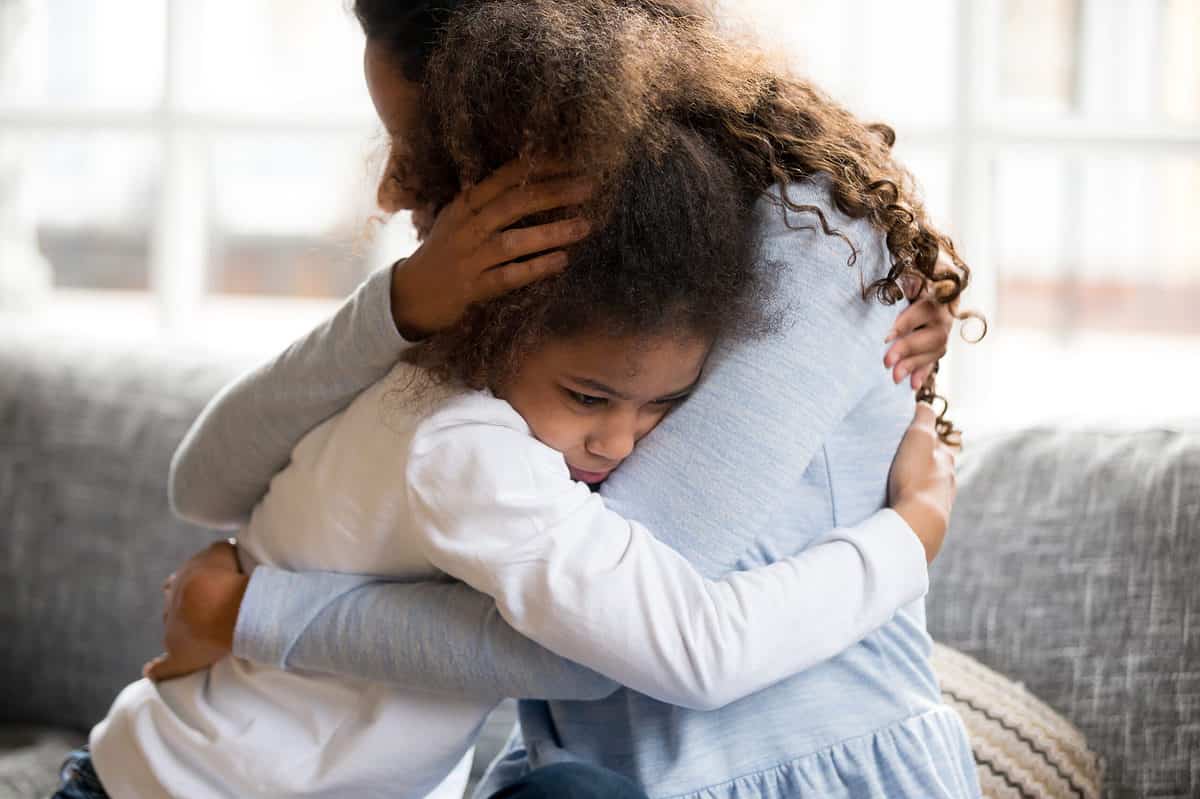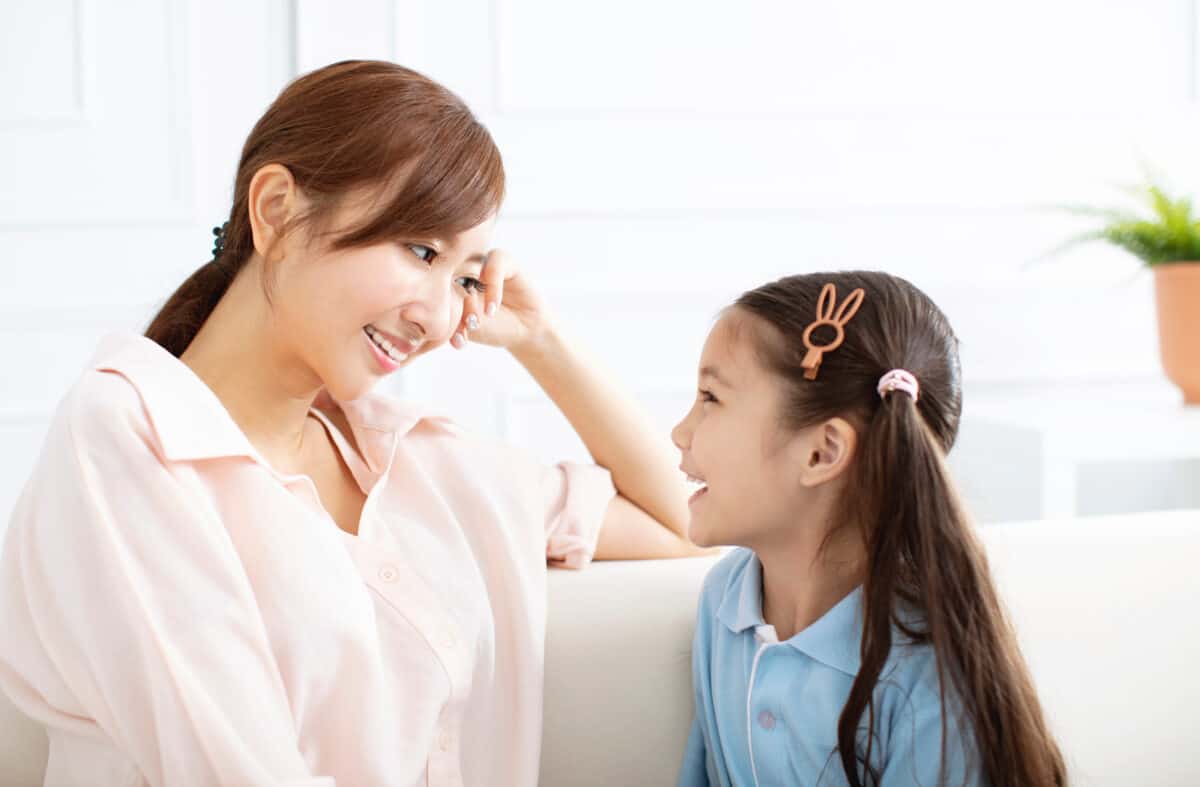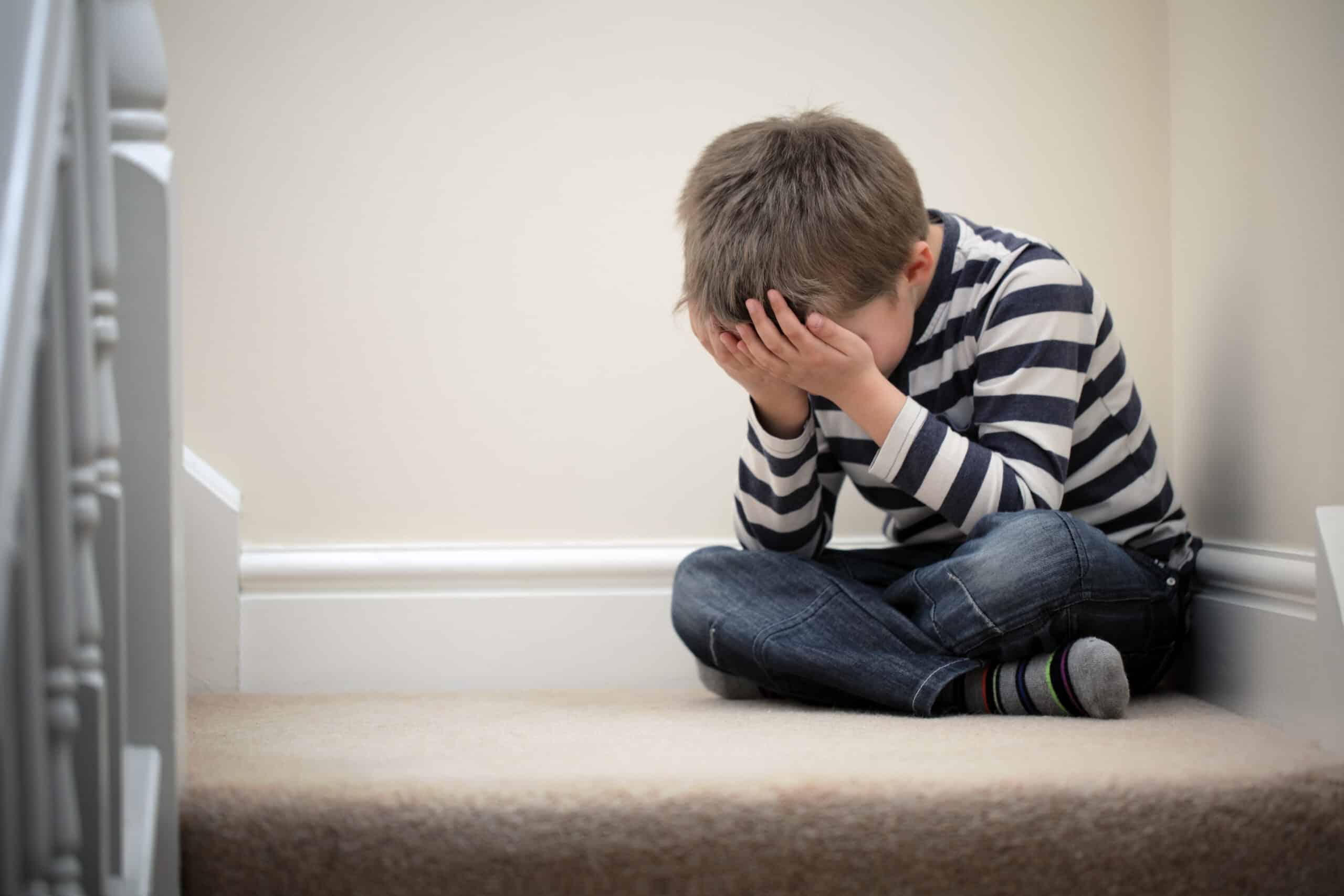It is a common misconception that kids do not have any problems. We see them laugh and play and go to school, and we often long for those more innocent days. However, kids can deal with stress and anxiety just like their parents. The key is to notice when you have a child with anxiety and to take the proper steps to help them out. In this article, we will talk about understanding anxiety and the six steps you can take to help your child feel better overall.
Key Points
- There are multiple types of anxiety. It's important that you try to determine the possible type of anxiety your child has, as well as potential triggers.
- A child who seems to constantly worry, suffers from attacks where they have labored breathing and a tightness in their chest, and/or has trouble concentrating or sleeping may be suffering from anxiety.
- It's important to remember that a stressed child is not necessarily a child with anxiety. Stress can, however, worsen pre-existing anxiety.
1. Understanding a Child with Anxiety

©iStock.com/fizkes
The first step that you need to take is to realize that it is very possible to have a child with anxiety. We tend to believe that only adults with jobs and grown-up problems can get stressed and anxious, but the fact is that it can happen to anyone. Studies show that as of 2020, more than 5 million kids have been diagnosed with anxiety problems. Plus, the CDC reports that 9.4% of children aged 3-17 have similar issues.
In essence, anxiety is a reaction to a traumatic experience or excess stress. Kids can experience trauma too, and it can come in the form of issues at school, the death of a loved one, bullying on the playground, and many other negative experiences. Kids can also be born with certain anxiety disorders.
Anxiety can manifest itself in many ways:
Stress – Caused by an external trigger like a fight with a friend or a big test. Stress can often be handled easier than anxiety, which is an internal struggle that is harder to get a hold of and truly understand.
Fear – The emotional response to a perceived threat.
Uncertainty – Often known as fear of the unknown. Uncertainty can lead kids to avoid trying new things, which can hamper their development.
Panic – Kids can experience panic attacks which can lead to symptoms like a racing heart and a quickening pulse, and the episodes can last 10 to 30 minutes.
Social Anxiety – Fear of being around other people. Kids might feel like they will be judged if they are around others or that they may be negatively evaluated by others. Children need to interact with others to grow and mature, so this can be dangerous.
Separation Anxiety – The opposite of social anxiety, children dealing with this issue can have panic attacks if they are separated from their loved ones. This fear can lead to sleep issues and trouble focusing at school.
Phobia – If anxiety is not recognized and treated, then phobias can form. Common phobias found in children include Hemophobia (fear of blood), Emetophobia (fear of vomiting or seeing others vomit), and Trypanophobia (fear of needles).
Selective Mutism – Kids that are paralyzed by anxiety and fear may become mute in certain situations, like at school or other public venues.
2. Know the Red Flags
As parents, the key is to be aware of the signs that your child may have feelings of stress and anxiety. While all kids may display some of the signs from time to time, take extra notice if you see your children experience one or several of these issues on a recurring basis:
- Difficulty concentrating.
- Unable to sleep or constantly waking up in the middle of the night with bad dreams.
- Not eating properly.
- Sudden fits of anger or irritability.
- Constant worrying or negative thoughts.
- Constant fidgeting or feeling tense.
- Taking toilet breaks more than often.
- Crying often.
- Acting very clingy.
- Often complaining of feeling unwell or having stomach aches.
- Shortness of breath and a tightness in the chest, assuming asthma and allergies have been ruled out.
- Reluctance or refusal to partake in certain activities.
3. Help Them To Relax
If you know that you have a child with anxiety and they come to you in a panicked mood, then the first step is to help them to relax. There are several tactics that you can try:
Deep Breathing – Help your child try a breathing exercise. An easy one is to inhale for four seconds, hold it for four seconds, and then exhale slowly for four seconds. Have them repeat the routine until they feel better.
Self-Talk – Once your child is able to speak, have them talk out their fears. Encourage them to say what is bothering them, and why they think it is bothering them, and then reassure them.
Exercise – It may seem counterintuitive at first, but exercise can help your child to calm down. By taking a walk or jumping rope, they can slow their heartbeat and calm their minds.
Write It Down – If your child is at the age where they can write out their feelings, then have them do so. By writing out our feelings, we can get them out of our system.
Hug and Empathize – As parents, we are supposed to provide constant love and support to our children, so do so when they are stressed. Give them a hug, and tell them that you understand their fear and that it will be alright.
4. Help Them Face Their Fears
In the case that your child continues to be anxious or you fear that they are getting close to phobia, then it may be a good idea to help them to face their fears.
For instance, if they are afraid to go to school on their own, then tell them that it will be okay, give them a hug, but have them go to class. When they see that there is nothing to fear, then their anxiety may melt away.
If they are afraid of being in social situations, then set up a playdate with a kid in their class. You can bring them to the park and give them some space. Your child will see that it is okay to be with others, and you will be there if they need your support.
The point is not to push them into dangerous situations or make them be afraid but to take baby steps to help them feel more comfortable and less anxious.
5. Allow Worry Time
If your child still deals with anxiety, then consider creating a special time of the day that you can call “worry time.” Make this a 10-15 minute period in the morning where your child can sit down and write out all of their fears and anxieties into a notebook. The idea is by writing out their thoughts, they can get them out of their system and leave their fears behind.
You can make this activity fun by coloring and decorating a worry box, and they can put their papers inside. It can be like a lock box for their fears. Once their fears are locked away, they can know that they are leaving that anxiety behind as they go on with their day.
6. Seek Professional Help
If you try all of the steps above but your child’s anxieties stay the same or get worse, then you may need to reach out to a third party. Don’t feel like you have failed if it comes to this. In fact, it is perfectly healthy for a child with anxiety to talk to someone. Therapists can help with feelings like anxiety, anger, stress, and grief. Plus, they can help kids get over common issues like bullying, family problems, and school issues. In the event that your child has an anxiety disorder, a therapist can help them get diagnosed.
If your child is experiencing severe anxiety, or if their anxiety is having a prolonged effect on their performance in school, it may be worth skipping the steps in this article and taking them to a therapist right away. The sooner you address the underlying causes of anxiety, the better.
What Not To Do

©Tom Wang/Shutterstock.com
While there are many tactics that can help your kids, there are other things that you should not do if your child has anxiety. Over time, these tactics could make things worse:
Don’t force your child to do what they're uncomfortable with, unless necessary. It is okay to ease them back into things slowly, but don’t force them to do something that makes them feel especially anxious or stressed. This will likely just make their anxiety worse.
Don’t ask leading questions. By asking questions like, “Are you stressed about the big test?” or “Are you stressed about your presentation today?”, you may put thoughts in their head and contribute to their anxiety.
Don't invalidate their feelings. Many people experience anxiety and stress. Many people, of all ages, have anxiety disorders. It's important that you take these experiences seriously; don't blow them off or make your child feel as if you don't care. Take the time to listen, and treat their feelings with respect, even if you don't understand them.
Don't belittle them or assume they need to just “get tougher”. Many parents, unfortunately, believe that anxiety is simply a weakness or a sign that a child needs to just grow up. Anxiety is not as simple as that, and in many cases it has an underlying cause that goes beyond your child's environment or personality. Telling them to act tougher, “man up”, or to quit acting babyish, among other similar things, will not help. In fact, it will likely push your child away and make them reluctant to share their troubles with you.
Conclusion
In the end, if you have a child with anxiety, it is important to know that you didn't do anything wrong as a parent. These are feelings that many kids can face, and with your help, they will get over their anxiety over time. Be patient, and don't be afraid to consult a professional if necessary. Just stick with them, show your love, and you will get through this.
The image featured at the top of this post is ©iStock.com/BrianAJackson.
